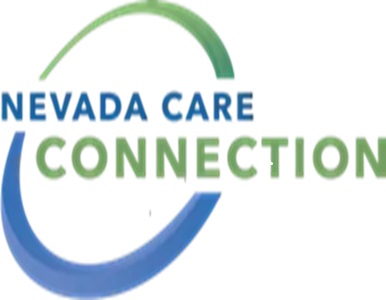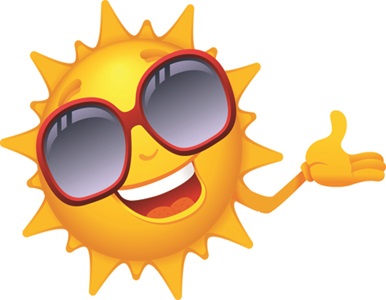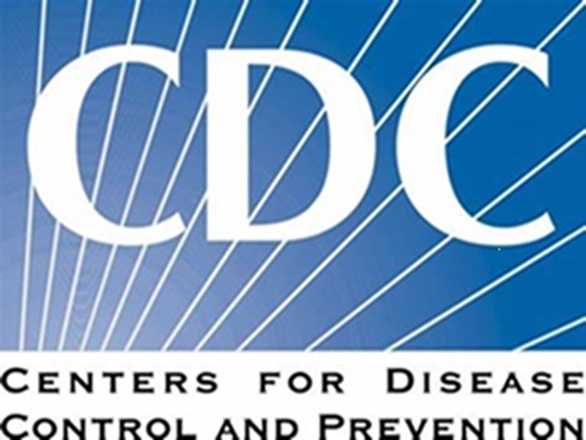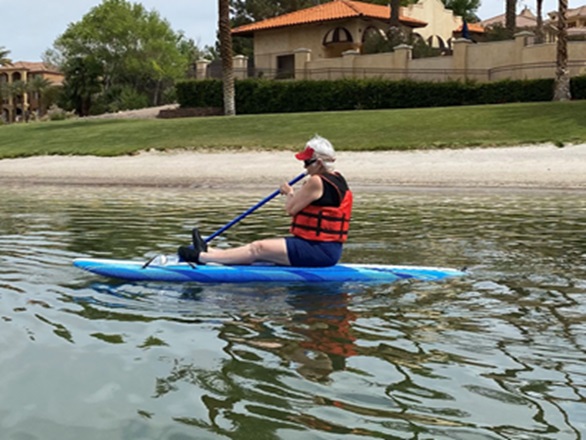In this edition
- EveryBODY is Aging –
Nevada’s Effort to Support
Older Adults
- Summer Safety
- Heat-Related Illness
- Protect yourself with these prevention tips
About the Newsletter
Learn about Nevada's efforts to support older adults by reading about the Centers for Disease Control and Prevention (CDC), Nevada Aging and Disability Services Division (ADSD), and Nevada Care Connection Resource Centers. In honor of summer, in this article you'll also read about summer safety tips and heat-related illnesses so you can stay safe and cool during this hot summer.
EveryBODY is Aging –
Nevada’s Effort to Support Older Adults
By: Cheyenne Pasquale
I heard someone say, “EveryBODY is Aging,” and it stuck with me. When we think about aging, we often do not think it applies to us or we picture certain stereotypes. But really, the luckiest of us get to live long lives filled
with memories, accomplishments, heartache and everything in between.
At the Nevada Aging and Disability Services Division (ADSD), our mission is to help people live the lives they want without fitting into stereotypes. We offer services and support to older adults, people with disabilities, family caregiver and support networks. We focus on healthy aging in everything we do.

Nevada Care Connection logo
The ADSD annually provides about $28 million to community partners to support programs across Nevada. Have you ever visited your local Senior Center and enjoyed a meal there? Or maybe you get meals delivered to your home? These meals are likely funded by ADSD. Do you need help with transportation or light housekeeping?
We support programs that offer these services, too. In addition to these important services, we provide grants for senior companion services, home modifications and repairs, and medication management programs. We support healthy aging with programs that teach you how to manage chronic health conditions and offer caregiver support programs. Family caregivers are critical to our work and we make sure they have access to services like respite (a break from caregiving). Across the state, ADSD also offers Medicare Assistance Programs, which provide free, fair benefits counseling for people on Medicare or approaching Medicare age.
ADSD programs
Finding the right services can be one of the biggest challenges. That’s why we have Nevada Care Connection Resource Centers. These centers have Resource Navigators who work with you to find services and supports that meet your goals. The Navigators help you look at services offered by state programs like the ADSD and explore all your options to make a plan for now and the future.
All services supported by ADSD are offered at little to no cost (eligibility requirements may apply). Our goal is to ensure people have choices and support in how and where they live. This network of services and our community partners help us achieve this goal for you, our fellow Nevadans.
Nevada Care Connection Resource Centers
Summer Safety

For many people, summer is a time for warm, sunny days, outdoor activities like swimming, vacations and picnics with family and friends. However, summer can also bring extreme heat, increased risk of dehydration, foodborne illness and other health risks. Recognizing these risks and taking preventative steps will allow you to enjoy yoursummer without paying the price.
Summer safety for older adults
Heat-Related Illness

Every year thousands of people suffer from heat-related conditions (hyperthermia) like heat stress, heat exhaustion and heat stroke. The Centers for Disease Control and Prevention (CDC) estimates that every year around 700 people in the U.S. die from excessive heat exposure. People suffer heat-related illnesses when their bodies cannot compensate for the heat and properly cool themselves. Older adults are more susceptible as their bodies return to normal temperatures more slowly and their bodies’ cooling mechanism is not as efficient. Being overweight, having poor circulation, having chronic medical conditions and high blood pressure or taking certain medications can also increase your risk. Very high body temperatures may damage the brain and vital organs.
Heat-related Illnesses
Protect yourself with these prevention tips:

- Air conditioning is the primary protective factor against heat-related illness and death. If you don’t have it, or to save money on your electric bill during the day's heat, visit air-conditioned shopping
malls and public libraries to help you stay cool.
- Stay indoors during times of extreme heat temperatures.
- Schedule outdoor activities carefully, limitsun exposure and rest in shaded areas. Remember, the sun is hottest between 10 a.m. and 2 p.m.
- When outdoors wear appropriate clothing: lightweight, loose fitting and light colored. Don’t forget sunglasses and wide-brimmed hats.
- Avoid dehydration and drink plenty of fluids. Dehydration is common among older adults and can be life-threatening. Stay hydrated by drinking plenty of fluids, consuming fruits and vegetables, and avoiding caffeinated and/or alcoholic beverages that can act as diuretics. Don’t wait to drink until you are thirsty, as that can be a sign of dehydration!
- Always wear sunscreen. A sunburn damages your skin, causes a loss of body fluids and affects your body’s ability to cool itself. Sunscreen can also protect against skin cancer which is strongly associated with ultraviolet radiation that comes from the sun. Look for a sunscreen with “broad spectrum” protection and SPF 30 or higher. Other skin cancer prevention tips include wearing protective clothing, avoiding midday sun exposure and seeing your doctor for a skin exam.
Heat Prevention Tips by the CDC
Published by:
Pasquale, C., 2024, Healthy LIVING while aging! (2024-08), Extension | University of Nevada, Reno, Newsletters
An EEO/AA Institution. Copyright ©
2026, University of Nevada Cooperative Extension.
A partnership of Nevada counties; University of Nevada, Reno; and the U.S. Department of Agriculture


